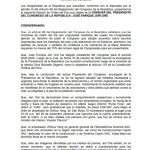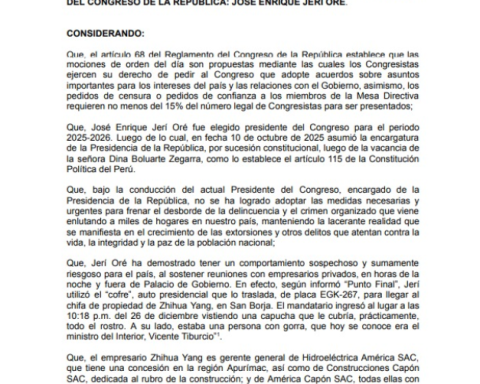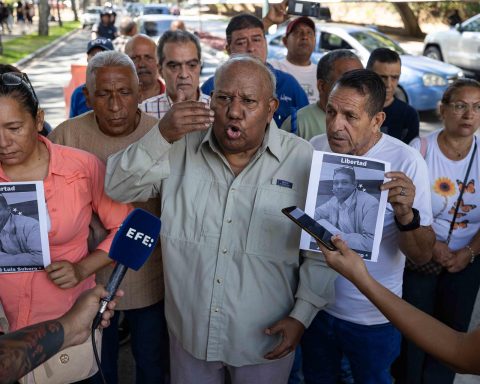June 18, 2023, 9:47 AM
June 18, 2023, 9:47 AM
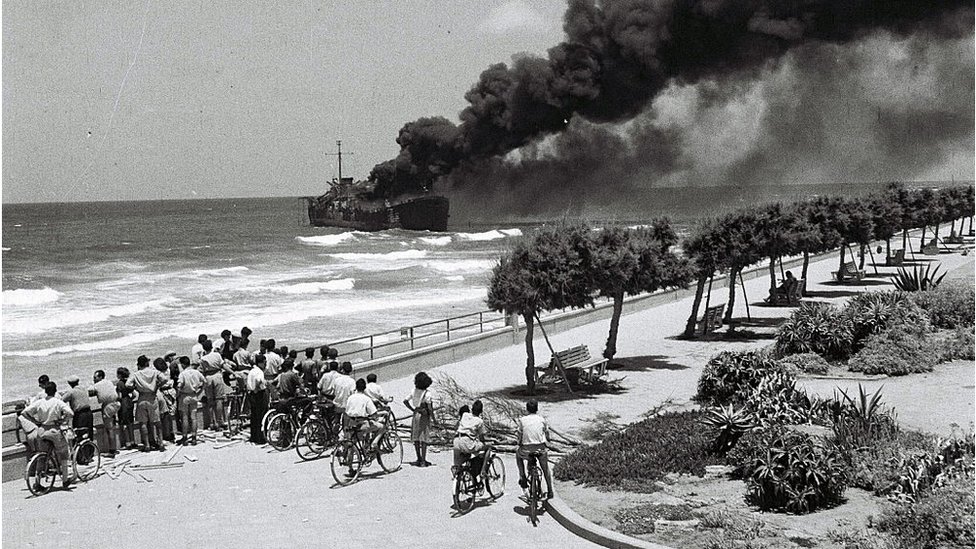
It was 4 in the afternoon on June 22, 1948 when the brand new prime minister of the recently proclaimed State of Israel ordered to open fire on the ship that was anchoring off the Tel Aviv beaches.
Israel was locked in a war with its Arab neighbors but on the Altalena, a ship loaded with weapons and fighters, there were only other Jews.
One of the mortars hit the boat, which caught fire. 16 people died, several dozen were injured and the Israeli state itself was about to sink to the bottom of the sea.
Never has Israel been so close to civil war as then.
The Altalena incident, which marks the 75th anniversary, is one of the most controversial episodes in the nascent history of Israel, which confronted the leaders David Ben Gurion and Menachem Begin, two of the founding fathers of the State of Israel, and the militias that had fought to create a State for the Jews in Palestine: the Haganah (already converted into an army) and the Irgun.
Although the ship still lies off the coast of Tel Aviv, the conflict it represents is still raging among a part of the Israeli population. The country lives immersed in a deep political crisis where “the possibility of a civil war, which was so real in 1948, is back on the table”Derek Penslar, professor of Jewish History at Harvard University, warns BBC Mundo.
But let’s go back to 1948. What drove the fledgling country into that abyss?
On May 14 of that year, after the end of the British Mandate for PalestineDavid Ben Gurion proclaimed the birth of the State of Israel at the Tel Aviv Museum of Art.

A state needed a unified army, so the Jewish militia haganahthe largest of those that had emerged in the previous decades, became the Israel Defense Forces (IDF, for its acronym in English).
The other two clandestine paramilitary groups operating in the territory, lechi and Irgunthe latter led by Menájem Begin, had to be progressively integrated into the Haganah, although for a time they maintained their own units within the IDF.
Same goal, different strategy
Although the three militias had as their objective the defense of the Jewish communities in Palestine and the expulsion of the British from the territory in search of its independence, their tactics had been very different.
Since its founding in 1920, the Haganah had pursued a methodical and progressive strategy towards independence, cooperating on many occasions with the British, such as during World War II to deal with the Axis powers.
The Irgun, however, emerged after a split from the Haganah in 1931, opted from the beginning for a confrontational strategyboth against the Arab population that inhabited Palestine and against the British, especially since they decided to restrict Jewish migration to Palestine.
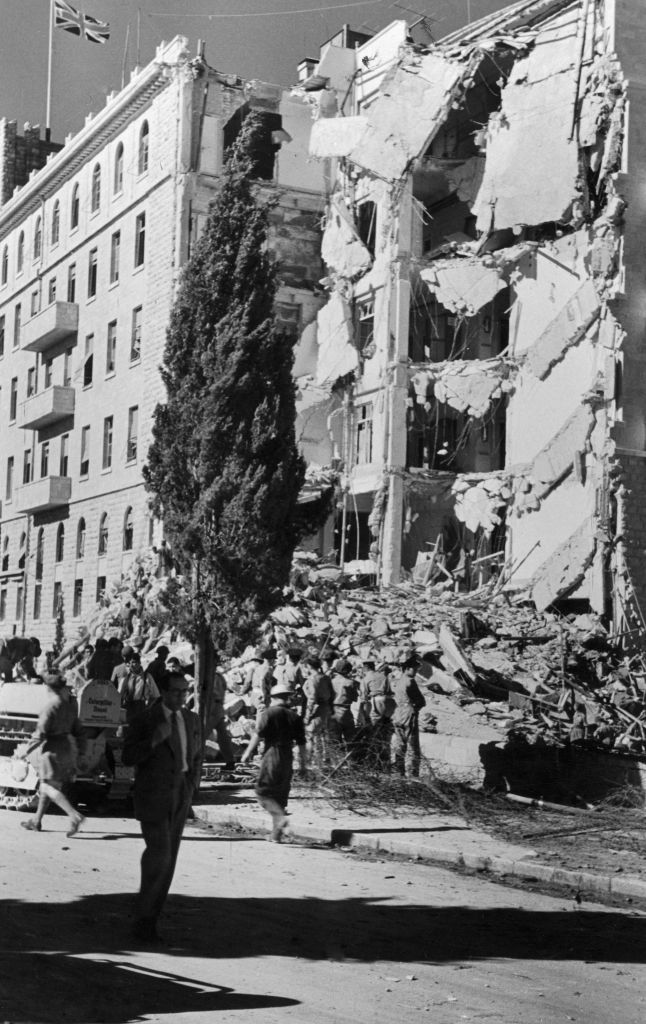
While the Irgun had less qualms about using deadly violence against British troops or against Palestinians in attacks “which we might define as pure acts of terrorism“, Penslar points out, such as attacks on markets that caused mass civilian casualties, the Haganah “was more moderate, and tried to limit its attacks to British property and buildings.”
Although this was not always the case.
In April 1948, the Irgún and Leji attacked the small town of Deir Yassin, on the outskirts of Jerusalem, with the blessing of the Haganah. The attack turned into a massacre in which more than a hundred Palestinians were killed. “The Haganah said they couldn’t stop them, but it is also possible that they thought it had a strategic value in itself and left the Irgun to do it,” argues the Harvard professor.
Leji, a smaller militia, was, directly, “a terrorist organization that killed civilians to sow terror“, according to Penslar. Leji is credited with the assassinations of the British Resident Minister for the Middle East, Lord Moyne, in 1944, and of the United Nations mediator, Folke Bernadotte, in 1948.
Their differences were such that, during World War II, in what is known as “hunting season”, the Haganah even turned Irgun members over to the British authorities, as they thought that the activities of the rival militia jeopardized the path to Israeli independence.
two opposing leaders
But the militias were as different as their leaders, David Ben Gurion and Menachem Begin.
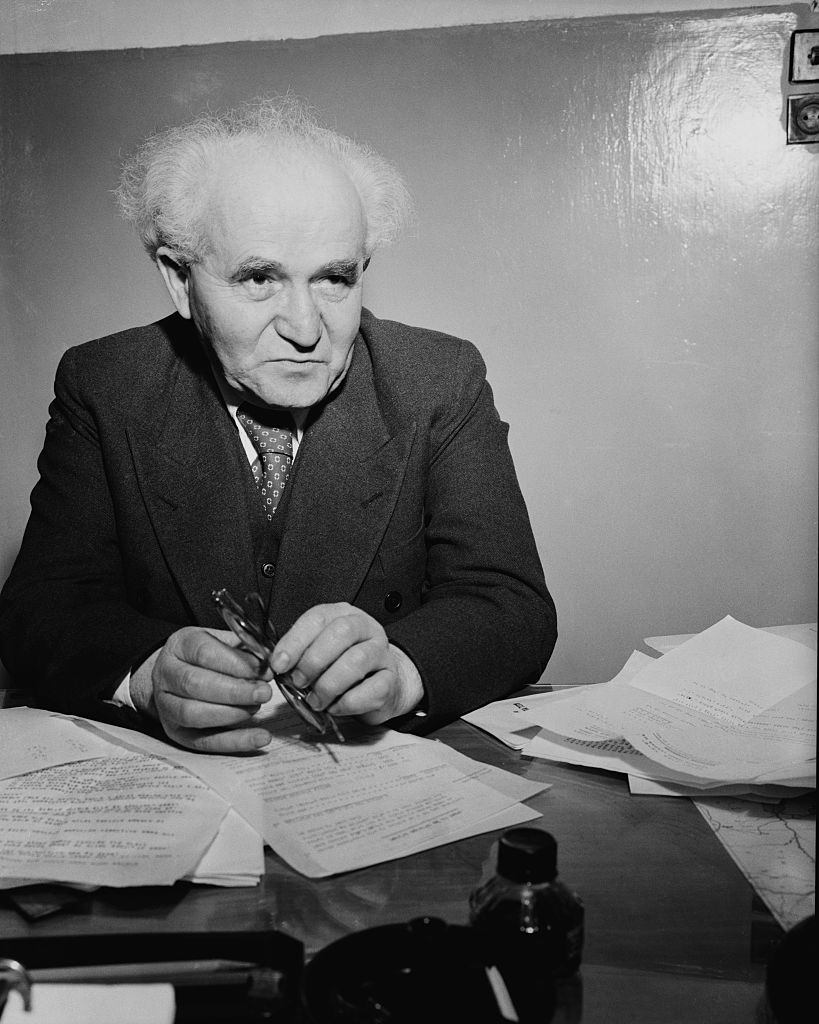
Both were visionaries and ardent Zionists, but radically opposed, not only in their idea of how to achieve Israel’s independence, but in their aesthetics, their language and their economic project for the country.
Ben Gurionwho headed the Jewish Agency for Israel, the organization that served as a kind of government for the Jewish community in the British Mandate of Palestine, He came from the social democratic tradition. He believed in labor movements, in government regulation of the country’s economy, and considered the masculine ideal to be that of the worker (“despite the fact that he only worked a few weeks in his life,” Penslar notes).
The ideal of the new Israeli was, according to Ben Gurion, the strong and productive worker of the kibbutz, the collective farms that were established in Palestine.
His secular and leftist project consisted of gradually occupying the territory and cooperate with the British to, when the time comes, agree on independence.
Menachem Begin it couldn’t be more different. Coming from a Polish family decimated in the Holocaust, Begin “believed that the new Jew had to be a rebel, a revolutionary, a fighter, and that the greatest Jewish heroism was to fight and die in battle,” explains the historian.
Always impeccable with his tailored suits and his exquisite education, Begin had a very romantic, emotional speech, full of passion. Right-wing and religious-minded, he often used similes of the Holocaust to emphasize and dramatize his message.
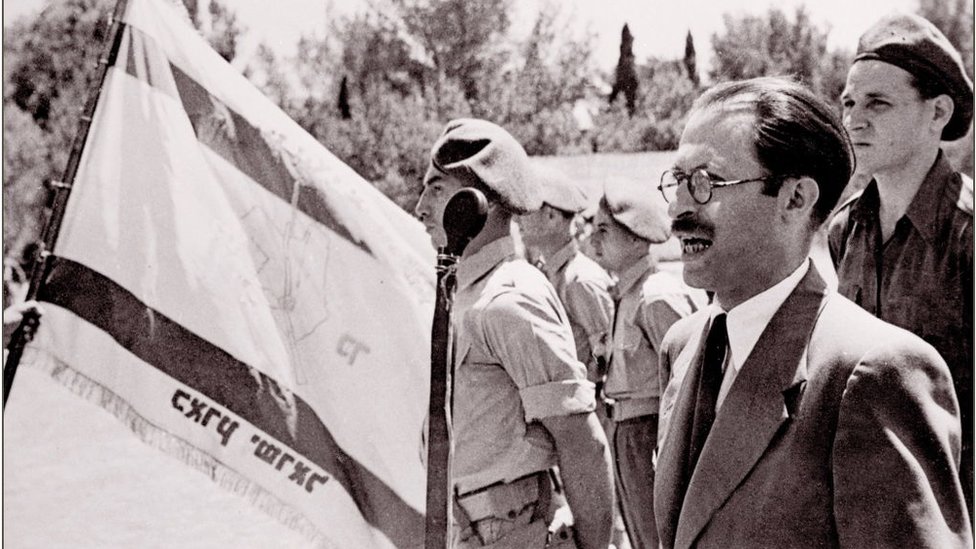
Despite their strategic and aesthetic differences, “deep down, their rivalry was based on a question of power“, assesses Penslar.
Ben Gurion led the yeslabor ionismwhich was the dominant force during the first 30 years of the State of Israel and shaped its institutions, while Begin, who became prime minister in 1977, embodied the yesrevisionist ionism, a right-wing vision that wanted to establish the State of Israel on both sides of the Jordan River and was marginalized for many years. Today, however, his heirs, including the Likud, dominate the country’s politics.
This rivalry reached its peak with the Altalena crisis.
The crisis
The political arm of the Irgun bought the Altalena after it was withdrawn from service by the United States Navy, which came to use the ship in the Normandy landings.
A few days after the proclamation of independence, in the French port of Port-de-Bouc, near Marseille, the Irgún boarded more than 900 people in the Altalena. The new migrants, mostly Holocaust survivors, were coming to Israel as volunteers to join their ranks.
But that was not his only burden.
A large amount of weapons was also on board, among other things some 5,000 rifles, 450 submachine guns, a dozen armored vehicles and some 5 million bullets.
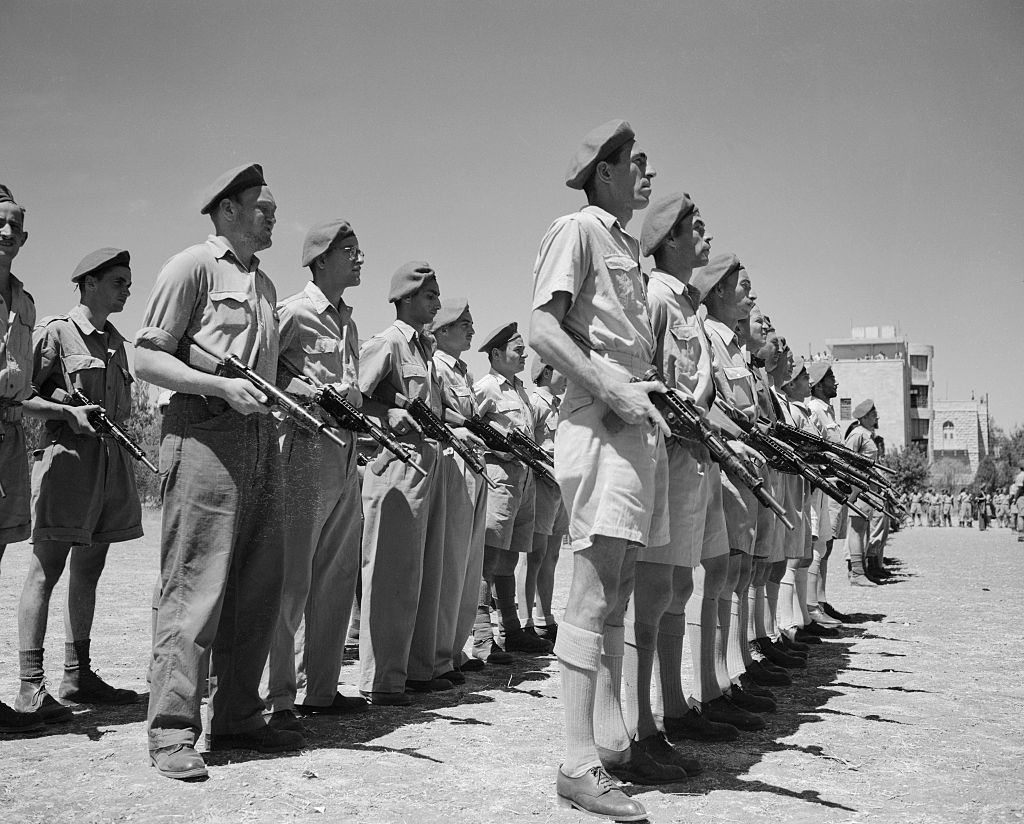
The UN, however, had just agreed on a Stop the fire in the war that Israel and its Arab neighbors were waging at the time, which had a clear condition: no new weapons could be imported during that period.
When Begin asked Ben Gurion for permission for the Altalena to disembark in Tel Aviv, he was met with the Prime Minister’s refusal. The ship was sent to the more discreet port of Kfar Vitkin, further north, where she docked on June 20, 1948.
Begin wanted this weapon to be intended for Irgun units within the IDF, but Ben Gurion distrusted the proposal. In a context of tension between the two former militias, arming the Irgun did not seem like the best idea, and he even came to think, according to some historians, that Begin was planning a coup.
In Kfar Vitkin, the immigrants disembarked and the Irgun militiamen began unloading their weapons.
The Altalena, however, was surrounded by two IDF regiments and three Israeli navy corvettes to force them to hand over the material. The tension was palpable and an exchange of shots began that ended with several deaths on both sides.
Begin then ordered the Altalena to leave for Tel Aviv, where the Irgun had more followers. The ship was then labeled by the IDF as an “enemy”, and the air force and navy were ordered to bomb it.
However, the pilots refused, and the crew of the corvettes dawdled and fired without much conviction.
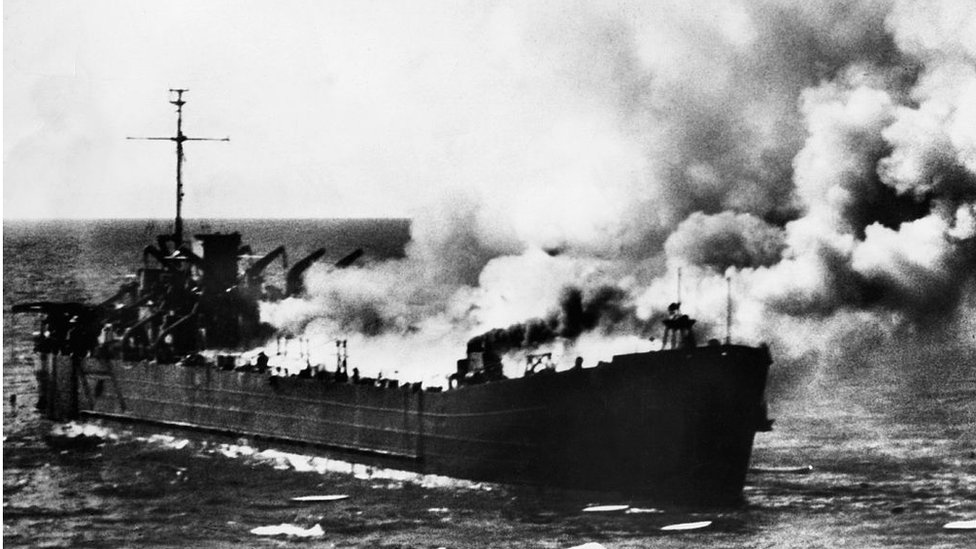
The ship docked in front of the Dan Hotel, on the Tel Aviv beach, before a crowd of Israelis, journalists and even United Nations observers.
The expectation did not make Ben Gurion bow down, and at 4 pm on June 22, he ordered to open fire on the Altalena.
The ship was hit by one of the shells and caught fire, while on the beach and in some parts of Tel Aviv, members of the IDF and the Irgun clashed.
Faced with the possibility that the incident would give way to a civil war, Menájem Begin decided to surrender, assuring that “Jews shall not kill other Jews.”
“The most interesting thing about the Battle of Altalena is not so much what happened but what didn’t happen,” says Derek Penslar. There were Irgun commanders willing to respond to the bombing of the ship and to overthrow the new Israeli government to install an authoritarian executive, the historian says, “but Begin used all his moral authority to prevent it, and this may be the most important act of his political career, avoiding civil war“.
Since then, “the Altalena has become a powerful symbol of a country that was on the brink of breaking up,” says the historian.
Although the divisions that existed in Israel in 1948 have nothing to do with those of today, Penslar points out, there is still resentment on the part of many Israelis at what they consider to be an unjustified attack on the Irgun and what they represented.
Today the heirs of the Irgun rulebut many Israelis still think that it is the elites of the left who pull the strings in the country, argues Penslar.
And that language of that time, in which the Irgun and the Altalena supposedly symbolize the people and the Haganah the elites, is heard again in Israel. “Resentment is a very powerful political ideology,” he concludes.
Remember that you can receive notifications from BBC Mundo. Download the new version of our app and activate them so you don’t miss out on our best content.








